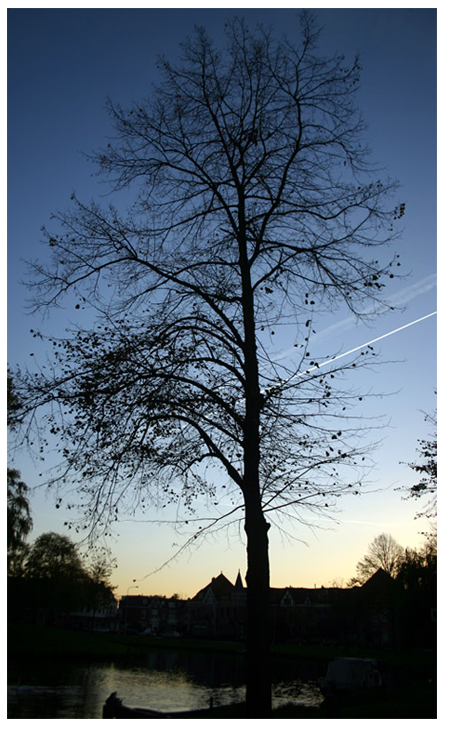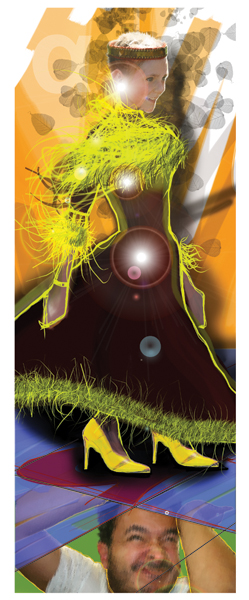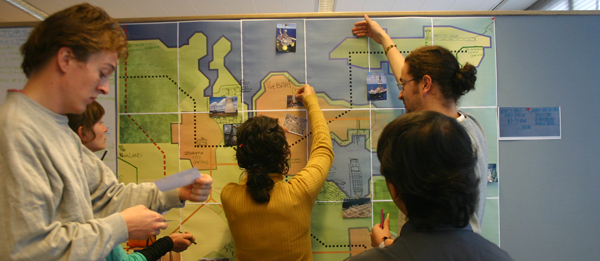Blog
A winning smile :) first place in the Océ Research Competition 2009
 I am proud to announce that I was part of the winning team of the Océ Research Competition. From 25 to 27 November 2009 Océ organized a technology business course, the Océ Research Competition.
I am proud to announce that I was part of the winning team of the Océ Research Competition. From 25 to 27 November 2009 Océ organized a technology business course, the Océ Research Competition.
Generation alpha girls (TUDELTA.36)
Our value system may recognize the uprising of females, but antiquated social mores still dictate that no matter how strong a female is at work, she should let her date choose the wine in a dimly lit restaurant.
18:30 hours: in the candlelit ‘Little Italy’ restaurant, Karen sits opposite her date, who is flipping through the menu for the third time tonight, still unable to make his choice. This date was made a couple days previously, at a common friend’s birthday party where they first met. When her date proposed dinner, Karen immediately said yes, as her dating page had been blank for quite some time. Besides, this guy was still eligible. After a little struggle with her not too cooperative schedule, Karen finally managed to steal four hours for the date between a meeting with her supervisor and her late fitness class.
Once the waiter had left, Karen’s date started the conversation. “So, I hear you got a job offer at BCG. Great! How did you do that?”, he asked. Obviously, Karen took such a casual question too literally. The date suddenly turned into a job interview. Karen’s academic achievements and experience were hard for her date to digest. And the truth was that what Karen had revealed was just half of her whole profile.
Case Study 06: Oasis in NY, an alternative mobility in megacities.
 Client: City Racks Design Competition, sponsored by the New York City Department of Transportation, in partnership with the Cooper-Hewitt National Design Museum and the support of Google, Inc. and Transportation Alternative.
Client: City Racks Design Competition, sponsored by the New York City Department of Transportation, in partnership with the Cooper-Hewitt National Design Museum and the support of Google, Inc. and Transportation Alternative.
Design & Engineering team: Patil S., Reyes, O., Heru Prabowo S., and Mejia J.R.
Project date & place: 2008 The Netherlands.
Key words: Bicycle rack, Urban furniture, Mobility, Strategic Design, New Product Development.
Methods used: Brainstorming and brain-writing.
Talk to me about the weather… (TUDELTA.34)
 As an international student from Colombia one of the biggest changes in my lifestyle over the past two years stems for the shifting, seasonal weather conditions here. The first fact is that the Netherlands, lying in the temperate or tepid latitudes of the globe, between the tropics and the polar circles, has generally mild shifts between summer and winter and a moderate maritime climate, rather than extreme hot or cold, according to my Lonely Planet travel guide. When preparing your trip to Delft from a distant warm country, you’re ready to face the weather; in your luggage a big jacket is packed, because winter winds can be cold and the official Dutch website for tourists www.holland.com says you ‘should certainly wrap up well in January and February’. And they add: One of the nice things about Holland is that ‘the Dutch are relaxed about clothes’. And I must admit that, yes!, all this about geographical, social and cultural conditions is really true, but nobody tells you about the impact the weather can have on your feelings and emotions. Yet international students report the significant influence that Dutch weather conditions have on their perceptual and emotional estimations of the university, the city and the country, all of which radically changes their lifestyles. So with winter coming, it’s better if you’re ready to face it.
As an international student from Colombia one of the biggest changes in my lifestyle over the past two years stems for the shifting, seasonal weather conditions here. The first fact is that the Netherlands, lying in the temperate or tepid latitudes of the globe, between the tropics and the polar circles, has generally mild shifts between summer and winter and a moderate maritime climate, rather than extreme hot or cold, according to my Lonely Planet travel guide. When preparing your trip to Delft from a distant warm country, you’re ready to face the weather; in your luggage a big jacket is packed, because winter winds can be cold and the official Dutch website for tourists www.holland.com says you ‘should certainly wrap up well in January and February’. And they add: One of the nice things about Holland is that ‘the Dutch are relaxed about clothes’. And I must admit that, yes!, all this about geographical, social and cultural conditions is really true, but nobody tells you about the impact the weather can have on your feelings and emotions. Yet international students report the significant influence that Dutch weather conditions have on their perceptual and emotional estimations of the university, the city and the country, all of which radically changes their lifestyles. So with winter coming, it’s better if you’re ready to face it.
This picture and the the caption were published on the Newspaper TUDELTA number 34.
More details:
http://www.delta.tudelft.nl/en/foreign-eye/foreign-eye/20269
and http://issuu.com/tudelta/docs/41.34
Javier Ricardo Mejia Sarmiento
Future Scenario (part 1): Barist, an imaginary country.
Future Scenarios (also called scenario planning, scenario thinking or scenario analysis) is a strategic planning method that some organizations use to make flexible long-term plans. The term scenario was introduced into planning and decision-making by Herman Kahn in the 1950s.
A scenario can be defined as: “A rich and detailed portrait of a plausible future world, one sufficiently vivid that a planner can clearly see and comprehend the problems, challenges and opportunities that such an environment would present.”


